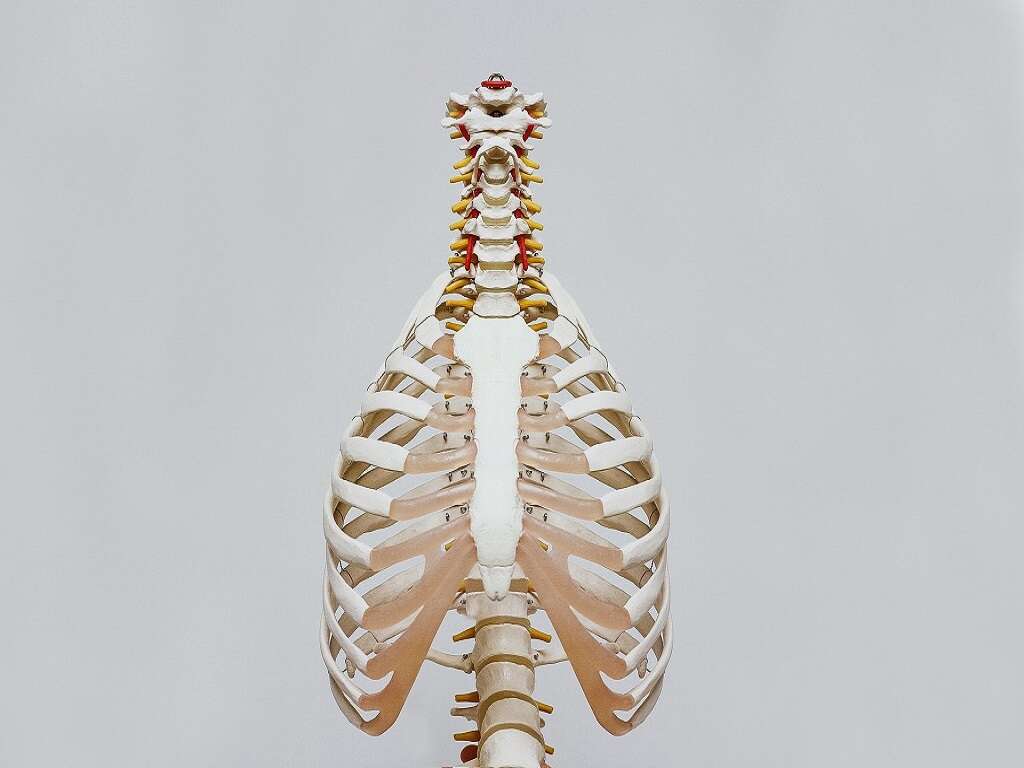Health Benefits of Creatine
 Article Sources
Article Sources
- 1. 'Creatine & Creatine Supplements: What is Creatine, Are Supplements Safe.' Cleveland Clinic, my.clevelandclinic.org/health/articles/17674-creatine-and-creatine-supplements.
- 2. Cooper, Robert, et al. 'Creatine Supplementation with Specific View to Exercise/sports Performance: an Update.' PubMed Central (PMC), www.ncbi.nlm.nih.gov/pmc/articles/PMC3407788.
- 3. Smith, Rachel N., et al. 'A Review of Creatine Supplementation in Age-related Diseases: More Than a Supplement for Athletes.' PubMed Central (PMC), www.ncbi.nlm.nih.gov/pmc/articles/PMC4304302.
- 4. Candow, Darren G., et al. 'Effectiveness of Creatine Supplementation on Aging Muscle and Bone: Focus on Falls Prevention and Inflammation.' PubMed Central (PMC), www.ncbi.nlm.nih.gov/pmc/articles/PMC6518405.
- 5. Kious, Brent M. 'Creatine for the Treatment of Depression.' PubMed Central (PMC), www.ncbi.nlm.nih.gov/pmc/articles/PMC6769464.
- 6. Arnold, Greg. 'Creatine Found to Help with Blood Sugar Health.' Natural Health Research Institute, 14 July 2011, www.naturalhealthresearch.org/creatine-found-to-help-with-blood-sugar-health.
- 7. Chilibeck, Phil. 'Effect of Creatine Supplementation and Exercise on Bone Health.' ClinicalTrials.gov, clinicaltrials.gov/ct2/show/NCT02047864.
- 8. Avgerinos, Konstantinos I., et al. 'Effects of Creatine Supplementation on Cognitive Function of Healthy Individuals: A Systematic Review of Randomized Controlled Trials.' PubMed Central (PMC), 15, www.ncbi.nlm.nih.gov/pmc/articles/PMC6093191.
Those who need to up their sporting game and get the most out of their workout will have undoubtedly heard of creatine. It's a popular supplement in the sporting realm, known for its quick burst of energy and support during the recovery process.
The body naturally produces creatine through the liver and kidneys, which is then stored in the skeletal muscles. Consuming red meat and seafood can boost the body's creatine levels. While creatine has a number of health benefits, it's a good idea to consult a physician before using it, especially those who are pregnant or have low kidney or liver function.1‘Creatine & Creatine Supplements: What is Creatine, Are Supplements Safe.’ Cleveland Clinic, my.clevelandclinic.org/health/articles/17674-creatine-and-creatine-supplements.

1. Accelerates Muscle Repair After Injury
Two elements of muscle repair that high performance athletes face are injury and muscle fatigue. Training for an upcoming competition can increase performance on the day of the event, but it's also important to prepare the body for repair after the competition.
Participants who took creatine five days before an Iron Man competition found that muscle repair took place faster than before, according to a research study.2Cooper, Robert, et al. ‘Creatine Supplementation with Specific View to Exercise/sports Performance: an Update.’ PubMed Central (PMC), www.ncbi.nlm.nih.gov/pmc/articles/PMC3407788. Another scientific trial determined that injured muscles also stand a better chance of repair when supplementing before and after an event.

2. Speeds Muscle Growth
Muscle morphology is the term to watch for when researching the effects of creatine on muscle growth. The combination of creatine and high intensity training allows the muscle cells to expand faster, which promotes muscle growth.2Cooper, Robert, et al. ‘Creatine Supplementation with Specific View to Exercise/sports Performance: an Update.’ PubMed Central (PMC), www.ncbi.nlm.nih.gov/pmc/articles/PMC3407788.
One of the reasons athletes see fast increases in muscle size with creatine is due to water retention. Professional bodybuilders may want to discuss alternatives with their coaches, as water retention could reduce muscle definition.

3. Increases Intense Training Performance
Creatine can help performance athletes get a little extra out of their muscles. High intensity training can build lean muscle mass, which is vital for peak performance. The addition of creatine allows athletes to tap into reserves to accelerate this process.
There are also indications that endurance strength could be improved, giving athletes an extra boost during intense training sessions. This is because the athlete can keep up the performance for a longer period without experiencing fatigue.

4. Age Related Neurological Disease Defence
A link between the use of creatine and its effects on neurological diseases brings new hope for those with age-related conditions, like Parkinson's disease, Huntington's disease, amyotrophic lateral sclerosis (ALS), long-term memory deficits, Alzheimer's Disease and stroke.
Increased neuroprotection is particularly helpful in the prevention of neurodegenerative diseases, such as Parkinson's. A clinical trial also revealed that creatine may help slow down the progression of the disease.3Smith, Rachel N., et al. ‘A Review of Creatine Supplementation in Age-related Diseases: More Than a Supplement for Athletes.’ PubMed Central (PMC), www.ncbi.nlm.nih.gov/pmc/articles/PMC4304302. Those with neurological diseases often also struggle with low muscle mass, which creatine can support.

5. Delays Age Related Muscle Loss
While the jury is still out on the effects of creatine on the prevention of muscle loss during illness and disease, some studies found that creatine has positive effects on the prevention of muscle loss caused by aging.
A study found that creatine supplements support the increase of aging muscle mass and muscle performance. These contribute to a better quality of life and support autonomy and injury prevention as people age.4Candow, Darren G., et al. ‘Effectiveness of Creatine Supplementation on Aging Muscle and Bone: Focus on Falls Prevention and Inflammation.’ PubMed Central (PMC), www.ncbi.nlm.nih.gov/pmc/articles/PMC6518405.

6. Fights Against Depression
While creatine has long been known for its mood enhancing qualities, studies suggest that it also had a positive effect on depressive symptoms, at least in animal models. This is largely attributed to creatine's ability to work as a carrier of energy to the various cells, including the brain.5Kious, Brent M. ‘Creatine for the Treatment of Depression.’ PubMed Central (PMC), www.ncbi.nlm.nih.gov/pmc/articles/PMC6769464.
While the brain only accounts for two percent of the body's mass, it consumes around 20 percent of the energy the body generates.

7. Helps Control Blood Sugar Levels
Those who battle with Type 2 diabetes understand the importance of maintaining healthy blood sugar levels. High blood sugar can cause severe complications, including death. One way to measure the body's response to food is by testing the HbA1C protein, which is an important indicator of long term blood sugar control.6Arnold, Greg. ‘Creatine Found to Help with Blood Sugar Health.’ Natural Health Research Institute, 14 July 2011, www.naturalhealthresearch.org/creatine-found-to-help-with-blood-sugar-health.
The combination of light exercise and controlled doses of creatine can improve the control of glycemic levels. For those with type 2 diabetes, this can be a game changer for meal planning and overall health.

8. Benefits Bone Health
Bone health is not something that comes to mind when creatine is discussed. However, studies have shown a link between better bone health and creatine supplements.
Studies reveal that bone conditions, such as osteoporosis, may benefit from creatine supplementation. This is because creatine seems to reduce the loss of bone density. Further trials will be conducted to sonfirm whether regular exercise and the use of creatine monohydrate can improve bone mineral density.7Chilibeck, Phil. ‘Effect of Creatine Supplementation and Exercise on Bone Health.’ ClinicalTrials.gov, clinicaltrials.gov/ct2/show/NCT02047864.

9. Boosts Vegetarian or Vegan Nutrition Levels
While the body produces half of the creatine it needs, the other half is usually obtained from animal proteins. It can be difficult for those who don't eat meat to meet their daily creatine requirements. A lack of creatine can lead to a fragile skeletal structure, muscle loss and injury.
While creatine isn't naturally found in plant based foods, there are a number of vegan friendly supplements on the market. These supplements are synthetic and don't include any animal products. However, it's still a good idea to check the ingredient list to ensure they don't include unhealthy flavor enhancers or sugar.

10. Improves Cognitive Function
Events that require short bursts of cognitive function, such as quizzes, exams and meetings may benefit from a creatine supplement. Studies show that a test group responded positively to creatine in the short term. It also enhanced intelligence and reasoning.
According to cognitive psychologists, short term memory is around 15 to 30 seconds before it converts to long-term. Mastering short term memory has a direct effect on a person's ability to function in the world around them.8Avgerinos, Konstantinos I., et al. ‘Effects of Creatine Supplementation on Cognitive Function of Healthy Individuals: A Systematic Review of Randomized Controlled Trials.’ PubMed Central (PMC), 15, www.ncbi.nlm.nih.gov/pmc/articles/PMC6093191.











